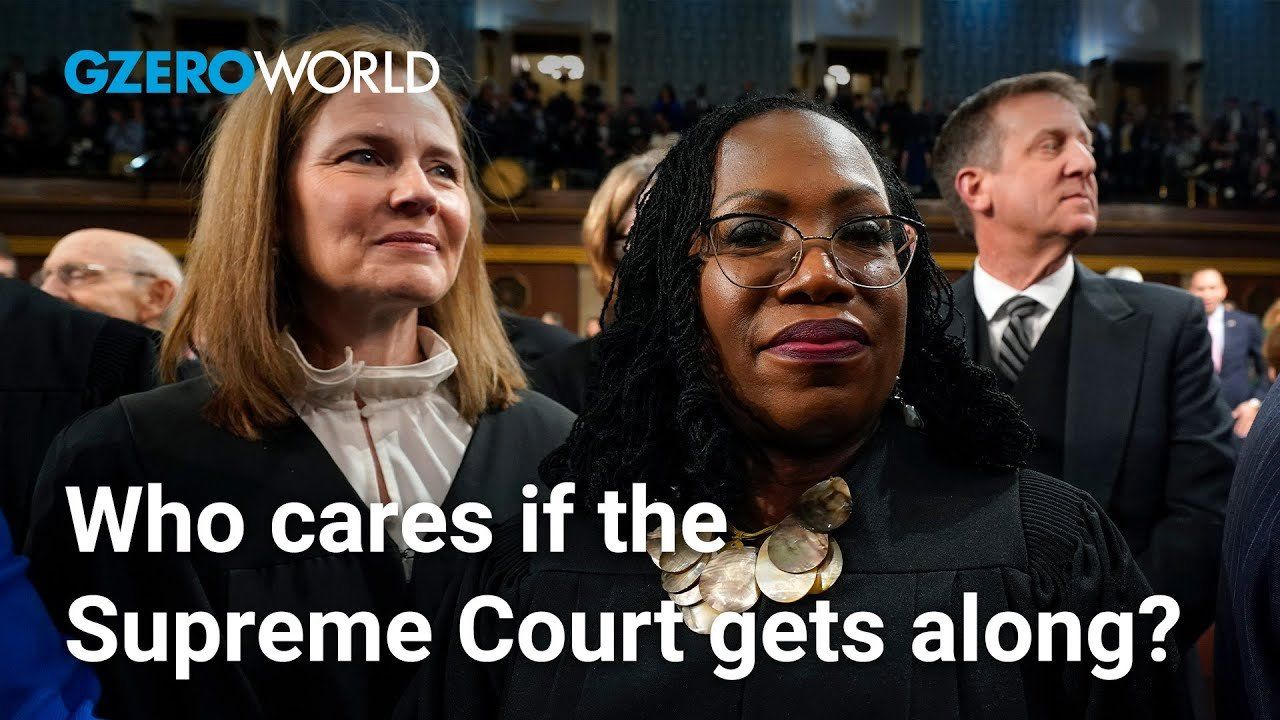GZERO World Clips
Who cares if the Supreme Court justices like each other?

Bazelon: Who cares if the Supreme Court Justices like each other? | GZERO World with Ian Bremmer

Yale legal scholar and New York Times Magazine staff writer Emily Bazelon wants to have faith in the Supreme Court. "I want to have a good faith belief in the justices' approach to these cases” she tells Ian Bremmer in a new episode of GZERO World. But in a wide-ranging conversation in which Bazelon and Bremmer preview the major cases facing the Supreme Court this spring, Bazelon confesses that the past few years have tested her faith.
“After a certain number of cases come out particular ways, you start to feel like cynicism is realism about the Court."
And Bazelon is not alone. Public faith in the Supreme Court is at record lows, thanks to its rightward tilt and ethical questions surrounding the conduct of Justice Clarence Thomas. And that’s a problem, Bazelon says, not just for America but for the justices themselves. “They all have an incentive to protect the institution, the liberals as well as the conservatives. They don't want to see Americans lose total faith in the Court. That's not good for them and their job security and their collective legacy.”
But do the justices themselves get along? Bazelon couldn’t care less. “I'm personally mystified why they think we should care about that. I don't care whether they can be nice to each other when they're having lunch, whether they're collegial. I care about whether American law is going in a direction that makes sense to most Americans.” But at a time when the country itself could not be more divided, could collegiality in the highest court of the land be just the thing that Americans cling to?
100 million: The number of people expected to watch the Super Bowl halftime performance with Bad Bunny, the Puerto Rican superstar and newly minted Album of the Year winner at the Grammys.
Think you know what's going on around the world? Here's your chance to prove it.
An imminent US airstrike on iran is not only possible, it's probable.
Americans are moving less — and renting more. Cooling migration and rising vacancy rates, especially across the Sunbelt, have flattened rent growth and given renters new leverage. For many lower-income households, that relief is beginning to show up in discretionary spending. Explore what's changing in US housing by subscribing to Bank of America Institute.